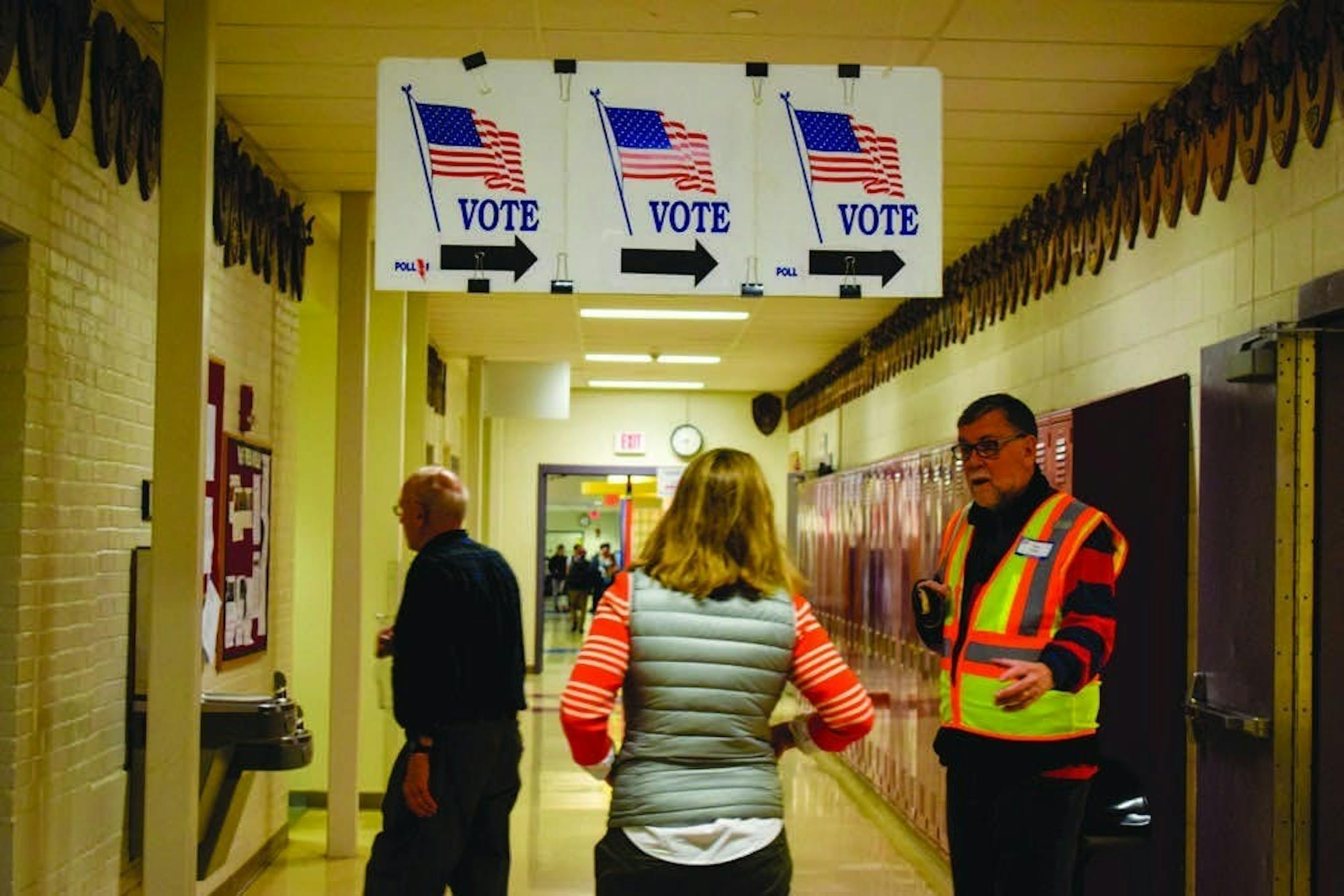This year’s midterm elections saw Granite State voters decisively elect Democrats into federal offices while preserving Republican control of the state.
The Associated Press has called New Hampshire’s closely-watched Senate race for incumbent Democratic Sen. Maggie Hassan, who won a second term and defeated Republican challenger Don Bolduc with 53.6% of the vote. On the House side, Democrats Rep. Chris Pappas and Rep. Ann McLane Kuster ’78 also successfully defended their seats by eight points and 12 points, respectively.
At the state level, Gov. Chris Sununu, a Republican, was reelected to a fourth term by more than 15 points compared to his opponent, Democratic state Sen Tom Sherman. Republicans are projected to retain their 14-10 majority in the state Senate and to win control of four seats on the state’s five-person executive council.
Government professor Dean Lacy said that based on the margins by which both Sununu and Hassan were reelected, a significant number of New Hampshire voters must have split their vote for Democrats nationally but opted for Republicans in state and local elections.
According to Lacy, Republican candidates like Bolduc, who have falsely claimed that former President Donald Trump won the 2020 presidential election, may be “too extreme” for New Hampshire, where independent voters outnumber both Democrats and Republicans.
“I think that the New Hampshire Republican Party has stayed a little more moderate compared to the national Republican Party,” Lacy said. “I think this has been a status quo-affirming election in New Hampshire.”
Government professor and one of four Democratic state representatives for Grafton 12 Russell Muirhead said that the Republican Party nominated “weak” candidates in New Hampshire and nationwide, which yielded disappointing returns for them considering the opposition party has a historical advantage in midterm elections. According to NPR, the current president’s party loses an average of 28 seats in the House of Representatives during the midterms.
“These were winnable elections for Republicans this term given that it was a midterm, given inflation, crime and so forth,” Muirhead said. “They could have beat Maggie Hassan, and they could have beat at least one of the members of the House, but they nominated very weak people — it’s unusual to see a party do that.”
In Grafton 12, the district which includes Hanover and neighboring Lyme, voters turned out overwhelmingly in favor of both Hassan and Sherman and reelected four incumbent Democratic state representatives, including Muirhead, in uncontested races. According to the New Hampshire Bulletin, control of the state House of Representatives remains unclear, as some races are still too close to call and may be recounted. Current projections indicate that Republicans are expected to maintain their majority but may only do so by a handful of seats in the 400-person chamber.
Muirhead said that the projected “very, very slim” Republican majority in the state House could lead to intense partisan gridlock if each party prioritizes gaining more seats in the 2024 election over working together to pass legislation. He added that some policy outcomes will be dependent on the number of members on either side of the aisle who happen to be absent when a proposal is voted on.
Dartmouth Democrats president Gabi Rodriguez ’23 said that in the lead-up to the elections, the organization focused on voter education and registration on campus by phone banking, sending out voter information blitzes and working with Dartmouth Student Government to host nonpartisan voter registration drives. She added that they invited several Democratic candidates, including Sherman, Kuster and three freshmen state Senators running for reelection, to campus- or club-wide events to speak about their campaigns and experiences in office.
“Our biggest obstacle was getting the message out in terms of telling folks that they are able to register and vote here in New Hampshire, as well as making people excited about the candidates that were on the ballot,” Rodriguez said.
According to Rodriguez, some of the most important issues to young people in this election were reproductive rights and climate change. She said that the attack ads Hassan ran against Bolduc — which frequently included the slogan, “We can’t afford Don Bolduc” — turned into a meme among some students which helped galvanize students to vote.
“It got people talking about [the Senate race],” Rodriguez said. “It actually got people assessing, like, ‘Hey, why can’t we afford Don Bolduc? Oh, he’s going to cut social security, he doesn’t support women’s right to choose, he’s an election denier.’”
Lacy said that the split between national and state results in New Hampshire may have cemented the state’s importance as a swing state in the 2024 presidential election.
“The way that the state legislature and governorship are split from the national legislature suggests that New Hampshire could go either way,” Lacy said.
The Dartmouth College Republicans did not respond to multiple requests for comment.




